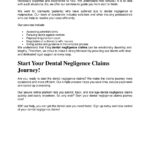Applying for VA disability benefits can be a complex journey, and the Compensation & Pension (C&P) exam often feels like the most crucial step. This comprehensive guide will demystify the C&P exam, explaining its significance, offering practical tips for preparation, and outlining your options if the exam doesn’t go as planned. We’ll empower you to navigate this pivotal process with confidence and increase your likelihood of a successful outcome.
Understanding the C&P Exam’s Impact
The C&P exam, conducted by a VA-contracted healthcare professional, is a pivotal point in your disability claim. But just how much weight does it really carry? Let’s break it down.
The Exam’s Primary Purpose
The C&P exam serves as a medical evaluation of your claimed condition(s). The examiner’s primary goals are to:
- Establish Service Connection: Determine if your current condition is linked to your military service. This involves assessing whether an event, injury, or exposure during your service caused or aggravated your condition.
- Assess Severity: Evaluate the current severity of your condition and how it impacts your daily life, work, and overall well-being. This assessment helps determine your disability rating (the percentage assigned to your condition’s severity).
How Much Weight Does the Exam Actually Hold?
The examiner’s findings are highly influential. The C&P exam often serves as the primary medical evidence considered by VA raters. Its influence can be even stronger if you lack extensive supporting medical documentation. While not the sole determinant, the exam results can significantly influence the VA’s decision regarding service connection and the amount of your benefit award.
A positive exam, where the examiner confirms service connection and accurately reflects the severity of your condition, can significantly bolster your chances of a successful claim. Conversely, a negative C&P exam—one where the examiner doesn’t find a clear link to service or underestimates your condition’s impact—can severely hinder your chances.
Competing Medical Evidence: Building a Stronger Case
The C&P exam isn’t the only piece of the puzzle. Other medical evidence, such as records from your private doctors and any medical documentation from your time in service, plays a vital role. This additional evidence can support—or even contradict—the C&P exam findings. A robust medical history offers a more nuanced and complete picture of your condition, strengthening your claim. Think of it this way: the more supporting “bricks” of evidence you have, the stronger your overall case becomes.
Navigating a Negative C&P Exam
A negative C&P exam can be discouraging, but it’s not the end of the road. You have options.
Understanding the Reasons for Negative Outcomes
A C&P exam might be considered “negative” if the examiner:
- Doesn’t Establish Service Connection: The examiner concludes there’s no clear link between your condition and your military service.
- Underestimates Severity: The examiner minimizes the impact of your condition on your daily life and functionality.
- Attributes the Condition to Other Factors: The examiner concludes your condition is primarily due to factors unrelated to your military service.
Challenging the Results: Your Right to Appeal
If you disagree with the C&P exam findings, you have the right to challenge them. Here’s how:
- Obtain the Exam Report: Request a copy of the C&P exam report and review it carefully. Identify any inaccuracies, omissions, or areas where you believe the examiner misunderstood your situation.
- Gather Counter-Evidence: Collect any evidence that supports your claim and contradicts the unfavorable findings. This could include:
- Medical opinions from your private physicians
- “Buddy statements” from fellow service members
- Personal statements from family or friends
- Request Reconsideration: Once you’ve gathered your counter-evidence, formally request that the VA reconsider its decision based on this new information. Acting promptly is crucial.
Some research suggests that appealing unfavorable C&P exam results can be successful, especially with strong supporting evidence. [https://www.lolaapp.com/] Don’t give up!
Preparing for Your C&P Exam: Tips for Success
Thorough preparation can significantly influence the outcome of your C&P exam. Here’s a checklist to ensure you’re ready:
- Organize Medical Records: Gather and arrange all relevant medical records chronologically. This clear timeline helps the examiner understand the progression of your condition.
- Practice Describing Symptoms: Rehearse explaining your symptoms clearly and concisely, focusing on their impact on your daily life. Clear communication ensures the examiner fully understands how your condition affects you.
- Consider a Support Person: If permitted, bring a trusted friend or family member to the exam for emotional support. They can also help you recall details you might otherwise forget.
- Know Your Rights: Familiarize yourself with your rights as a claimant. [https://www.lolaapp.com/] Understanding the process empowers you to advocate for yourself effectively.
- Be Honest and Accurate: While it’s natural to want your condition to be taken seriously, resist the urge to exaggerate your symptoms. Honesty and accuracy are crucial for a fair assessment.
- Be Punctual and Respectful: Arrive on time and treat the examiner with courtesy and respect. This creates a positive environment for the exam.
- Bring a Medication List: Provide a comprehensive list of all medications you are currently taking, including dosages and frequency.
- Dress Comfortably: Wear comfortable clothing that allows for any necessary physical examinations.
Additional Resources and Support
Navigating the VA disability claim process can be overwhelming. Here are some resources that can provide valuable assistance:
- Veterans Service Officer (VSO): A VSO can provide expert guidance and advocacy throughout the entire claims process. They can help you prepare for your C&P exam, gather your documents, and assist with appeals if needed. [https://www.lolaapp.com/]
- Nexus Letter: A nexus letter, written by a healthcare professional, links your current condition to your military service. While the effectiveness of nexus letters is subject to ongoing research, they are often seen as valuable supporting evidence. [https://www.lolaapp.com/] You might explore the connection between certain health conditions and remedies like Kangen water acid reflux as part of your overall health management.
Remember, the C&P exam is a critical step, but with preparation, honesty, and the right support, you can navigate it successfully. We hope this guide empowers you to approach your exam with confidence and get the benefits you deserve.
- Georgia Platform: A Southern Strategy, 1850s - March 31, 2025
- How many weeks is 40 days: Quick Conversion Guide for Accurate Results - March 31, 2025
- How many feet is 300 meters? 984 Feet: Understand Length Conversions Easily - March 31, 2025















